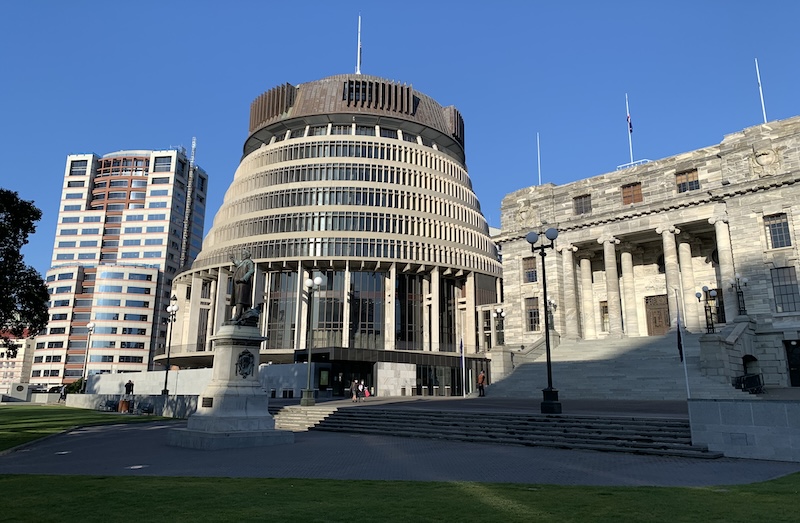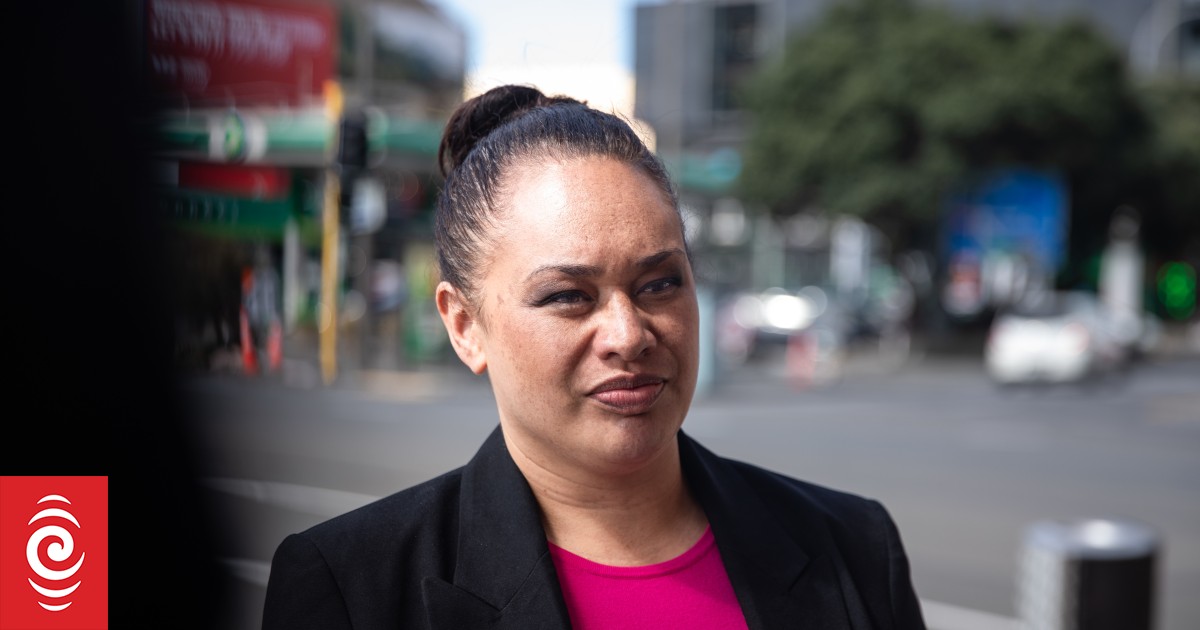Home price slide loses momentum as new listings tighten
The residential property market continues its downturn but the rate of decline has pulled back sharply, AAP reports.
The monthly home value index released by property data from CoreLogic declined 0.14% over the month – the smallest monthly loss since the Reserve Bank first started hiking interest rates in May last year.
CoreLogic’s research director Tim Lawless said consistently low numbers of new homes listed for sale and rising auction clearance rates were insulating home prices.
Lawless said:
The past four weeks have seen the flow of new capital city listings tracking 17% lower than a year ago and 11.9% below the previous five-year average.
Across the capital cities, Sydney home values recorded the only uplift, rising 0.3%.
But the easing rate of decline was evident across the board, with Darwin the only capital city to record a steeper monthly fall over the month.
Regional home values fell 0.3% and faster than the 0.1% decline across combined capitals, although the lift in Sydney home values largely accounted for this difference.
Overall, rest-of-state regions were still performing the same or better than their capital cities.
Lawless said it was hard to say if the market was bottoming out or if this was “the eye of the storm”:
Considering the Reserve Bank of Australia’s move to a more hawkish stance at the February board meeting, along with an expectation for a weaker economic performance and a loosening in labour markets, there is a good chance this reprieve in the housing downturn could be short-lived.
Key events
Cool start to Autumn for south east Australia: BoM
It’s the first day of Autumn, leaving us all wondering – as Noel Harrison sung in The Windmills of Your Mind – “why did summer go so quickly?”
The south-east of the country is already feeling the effects of the cooler Autumn weather today but a return to milder conditions is expected over the weekend.
Caitlin Cassidy
Students ‘protesting against a tax on the right to protest’ in Sydney
Student activists are holding a rally outside the Downing Centre in Sydney in opposition to the arrest of Cherish Kuehlmann, a student protester charged with a single count of unlawful entry at a recent demonstration.

Kuehlmann was arrested at her home at midnight after she took part in a student protest outside the Reserve Bank of Australia over the housing crisis. Activists with the National Union of Students are calling on the police to drop the charges.
Maddie Clark, the University of Sydney environment officer, who is facing suspension for a protest against former prime minister Malcolm Turnbull at the university last year, appeared at the protest.
She urged the state government to reverse laws passed in the wake of a series of climate protests that introduced tough new penalties for activists who blocked roads, bridges and tunnels.
She told the crowd:
We are protesting against a tax on the right to protest.
Kuehlmann said she was shocked to be arrested later that night as she had participated in many similar actions to the one at Martin Place without incident.
What kind of society do we live in where 30 students can’t hold up placards outside the RBA without being threatened with a year in jail? Corporations are reporting record profits and landlords are jacking up rent. Meanwhile students are threatened with evictions and homelessness. I will not be intimidated and am determined to keep up the fight against the people responsible for this.
A police fact sheet seen by Guardian Australia alleged the group had not completed one of the “form one” notifications to police to authorise a public assembly, and that during the protest demonstrators entered the Commonwealth bank where they began “shouting and protesting” while “using loudspeakers to spread their messages” for about five minutes.
A Lismore climate campaigner on why she does what she does
Ella Buckland became a campaign manager for Australian Parents for Climate Action in Lismore after the climate crisis came to her front door a year ago.
In an opinion piece today, Buckland shares her experience of what this last year has been like for her and her community, as well as what she wants to see for the country going forward:
I’ve never raised my child to be fearful of climate change. She doesn’t even know what it means. I did this to give her a few more years of innocence, but even with my careful planning for her mental health, climate change came to us.
It broke down our doors and windows and delivered a rain of shit on to everything we loved. I don’t want this to be her future, or the future for any child. There are solutions, Australia is just not utilising them.
We need to work together, we need to at least try to reduce emissions to keep our communities, our children safe, because next time, it could be your child.
Read the entire piece here:
Truth-telling inquiry to hear ‘human toll’ of injustice
The personal toll of systemic injustices on Indigenous Victorians and their families is set to be laid bare by Australia’s first truth-telling inquiry, AAP reports.
From today, Victoria’s Yoorrook Justice Commission will return for another two-week block of public hearings delving into the state’s “broken” child protection and criminal justice systems.
The topics were raised by the commission last year, but the latest block of hearings will place a greater emphasise on personal experiences.
Indigenous parents and carers of removed children and Stolen Generations members will be called during the first week.
Commissioners will also hear from Aboriginal Victorians with links to the adult and youth criminal justice systems and their families, as well as advocates and experts.
Some witnesses will speak in closed sessions because of the sensitive nature of their evidence.
Yoorrook chair Eleanor Bourke said:
We will hear about the human toll of systemic injustice, and the enduring impact this has on individuals, their families and community more broadly.
Reforms to Victoria’s strict bail laws and raising the age of criminal responsibility will continue to be canvassed, after the state government committed to legislative changes, along with addressing systemic injustices in both systems.
Reform needed in a number of areas, not just super tax: Allegra Spender
Independent MP for Wentworth, Allegra Spender, says she wants to see a wider debate about the whole of Australia’s tax system, “not just one tax at a time”.
In a Twitter thread this morning, Spender talks about the reform she’d like to see:
We talked about capping super for a week. And now the government has acted. But the $2bn [p.a.] raised won’t solve our structural deficit. I’m really pleased the Treasurer Jim Chalmers is encouraging “conversations” because frankly there’s a lot we need to talk about.
So let’s talk about our whole tax system. Not just one tax at a time. Australia relies too much on direct taxes – income tax and company tax. We’re out of step with other OECD countries. We need to consider other tax options.
For example – what about a Minerals Resource Rent Tax for future mining? We’ve seen oil and gas companies reap super profits off the back of the Ukraine war. Australian taxpayers missed out. What sort of tax system should we have for the next mining boom? Cobalt, lithium etc …
While we’re on Super – should we be pushing ahead with lifting compulsory Super to 12% in 2025? The Grattan Institute reports that younger Australians face financial stress because they’re putting aside more than they need for retirement. Let’s tackle that discussion too.
And what about how govt spends your taxes? For example, we’re spending more on education than ever, but education standards aren’t rising. How can we spend that money to better effect? Problems aren’t always solved by more money. We’ve got to make sure we’re spending wisely.
All these areas and more need reform – positive change for the future. Too often the major parties (pushed by the media) won’t tackle reform. They’re trapped in a spiral of gotchas and point scoring where reforms are ruled out before they’re even considered.
We need to develop policies to achieve our national objectives for a future economy that supports innovation, business, climate action, and fairness. Voters want to see politics done better, and I’ll be consulting my constituents and pushing both sides to do politics better.
On what reform other crossbenchers want to see, read Paul Karp’s latest:
Home price slide loses momentum as new listings tighten
The residential property market continues its downturn but the rate of decline has pulled back sharply, AAP reports.
The monthly home value index released by property data from CoreLogic declined 0.14% over the month – the smallest monthly loss since the Reserve Bank first started hiking interest rates in May last year.
CoreLogic’s research director Tim Lawless said consistently low numbers of new homes listed for sale and rising auction clearance rates were insulating home prices.
Lawless said:
The past four weeks have seen the flow of new capital city listings tracking 17% lower than a year ago and 11.9% below the previous five-year average.
Across the capital cities, Sydney home values recorded the only uplift, rising 0.3%.
But the easing rate of decline was evident across the board, with Darwin the only capital city to record a steeper monthly fall over the month.
Regional home values fell 0.3% and faster than the 0.1% decline across combined capitals, although the lift in Sydney home values largely accounted for this difference.
Overall, rest-of-state regions were still performing the same or better than their capital cities.
Lawless said it was hard to say if the market was bottoming out or if this was “the eye of the storm”:
Considering the Reserve Bank of Australia’s move to a more hawkish stance at the February board meeting, along with an expectation for a weaker economic performance and a loosening in labour markets, there is a good chance this reprieve in the housing downturn could be short-lived.

Graham Readfearn
Australia must set targets for amount of CO2 to be removed from air, scientists say
Australia should set targets for the amount of carbon dioxide that could be pulled permanently from the atmosphere using “carbon drawdown” techniques like tree planting and direct air capture, according to a report from the Australian Academy of Science.
A national coordinated approach is urgently needed to promote projects that remove carbon dioxide from the air, the report says, with a lack of policies seeing Australia fall behind other countries.
Drivers asked to go without a car in Uber experiment
Fifty Australian drivers will be challenged to give up their cars for a month and replace driving with ride-share trips, rental cars, e-bikes and scooter rides as part of a social experiment.
Uber unveiled its One Less Car trial today, revealing it would work with behavioural researchers as well as micro-mobility firms Lug + Carrie and Lime to test whether it was possible and cheaper to replace car ownership with services.
Each participant will receive more than $1300 in travel credits to use on public transport, Uber rides, short-term Uber car share rentals, e-bikes or e-scooters through Lime, and cargo e-bikes from Lug + Carrie.
The trial will come after a survey of more than 1,000 Australians found almost half were concerned about road congestion but almost as many planned to buy another car within two years.
Uber Australia general manager Dom Taylor said the experiment was “many, many years in the making” and was designed to challenge the idea Australians needed to own a car for everyday transport.
There is going to be a gradual shift, we think, away from car ownership over the next 50 years but Uber’s the sort of place where we don’t love gradual shifts – we like step changes.
There is a mind-boggling problem that Australia faces and that is the 15m cars that Aussies own that sit idle 95% of the time that are causing holes in our cities and our wallets.
Uber will recruit participants from Sydney, Melbourne, Brisbane, Adelaide and Canberra for the trial, and ask them to give up at least one of the cars in their household.
Each person must fill out a journal about their experience and wear a fitness tracker to determine whether they exercise more.
Taylor said data compiled in the trial would be analysed by researchers at The Behavioural Architects, and shared with academics and government agencies.
– AAP
Ancient texts shed new light on mysterious whale behaviour
Taking a step away from superannuation for a moment to bring you news that will delight lovers of whales and ancient history alike.
If there’s one story you’ll want to be bringing to your office lunchroom or whatever conversations you’re having today, it’s this one from our science writer Donna Lu about how ancient texts are shedding new light on mysterious whale behaviour:
Mysterious whale feeding behaviour only documented by scientists in the 2010s has been described in ancient texts about sea creatures as early as two millennia ago, new research suggests.
In 2011, Bryde’s whales in the Gulf of Thailand were first observed at the surface of the water with their jaws open at right angles, waiting for fish to swim into their mouths. Scientists termed the unusual technique, then unknown to modern science, as “tread-water feeding”.
… Flinders University scholars now believe they have identified multiple descriptions of the behaviour in ancient texts, the earliest appearing in the Physiologus – the Naturalist – a Greek manuscript compiled in Alexandria around 150-200CE.
Dr John McCarthy, a maritime archaeologist at Flinders University in Adelaide, South Australia, and the study’s lead author, made the discovery while reading Norse mythology, about a year after he had seen a video of a whale tread-water feeding.
Taylor doesn’t answer whether the coalition government would repeal the necessary legislation on these changes to super were they to win government at the next election, he only says that they will oppose the legislation in this term of parliament.
He also questions the veracity of the government’s claim that the changes will only affect 80,000 Australians:
It’s very important to understand the idea that this will only affect 80,000 Australians is baloney, because inflation is running hot and the threshold is not indexed.
So we’ll see the threshold dropping in real terms and affecting many, many more Australians.
At a time when we have high inflation, the Treasurer wants to impact many more Australians … the government should be honest about how many Australians will be affected in a relatively high environment as this threshold falls in real terms, and people’s superannuation accounts increase.
Circling back to the shadow treasurer, Angus Taylor’s interview with ABC News Breakfast.
Taylor is worried about the other $150bn worth of tax concessions that were outlined in yesterday’s expenditure statement being “up for grabs” including a tax on the family home and taxes on negative gearing.
When Rowland informs Taylor the prime minister, Anthony Albanese, has just ruled out any changes to the capital gains tax on the family home, he says:
Well, he ruled out taxing superannuation as well. So, it’s very clear from what’s been happening in the last week that Labor doesn’t keep its commitments. It doesn’t keep its promises. And I don’t think we can trust the prime minister on claiming he’s not wanting to tax the family home as well.
Taylor is asked to confront the possibility he has double standards when it comes to criticising a Labor government, because as Rowlands points out the coalition government, under then Prime Minister Malcolm Turnbull, “brought in a heap of changes in the 2016 budget”
A $1.6m cap in tax concessions on pension phases, winding back contribution limits, increasing from $300,000 a year to $250,000 a year the income level in which high super taxes come in. None of that was fore shadowed to Australian voters.
Taylor replies:
They were taken to the 2016 election and legislated after the election. Labor is not proposing to do that. They’re proposing to legislate this now, in this term of Parliament. If they were serious about taking it to an election, they wouldn’t legislate before the election.
It’s bizarre. It’s saying, yes, we’re going to legislate this now, and then we’ll take it to the Australian people. I mean that’s not taking it to the Australian people.





















Discussion about this post